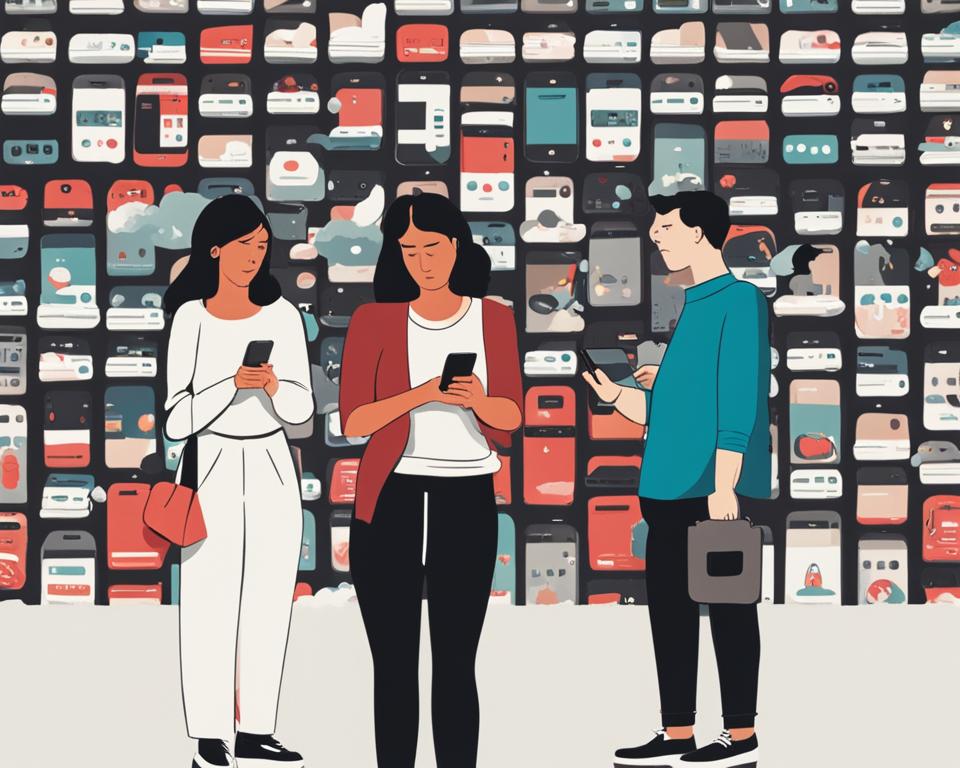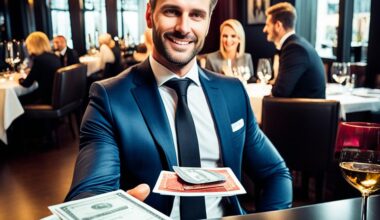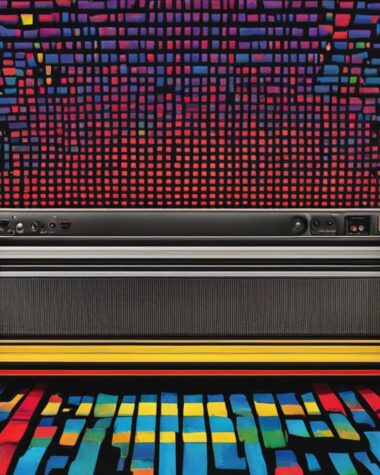The Power of Gratitude
Gratitude is like a magic elixir for the soul. When we shift our focus to gratitude, we cultivate a mindset of abundance rather than scarcity. It helps us acknowledge our blessings and be content with the path we’re on.
Take a moment each day to name three things you’re grateful for. It can be as simple as a warm cup of coffee, a supportive friend, or the beauty of a sunset. By acknowledging the good in our lives, we diminish the potency of comparison.
Crafting Your Social Media Feed
Social media feeds can be a double-edged sword. They can either uplift us or bring us down faster than a rideshare driver who took a wrong turn. That’s why it’s crucial to curate our feeds mindfully.
Unfollow accounts that evoke negative emotions or perpetuate unrealistic standards. Instead, follow individuals who champion authenticity and promote self-acceptance. Seek out content that emphasizes personal growth, mental health, and genuine connections.
Embracing Authenticity
We are all beautifully flawed human beings, and that’s what makes us unique. Rather than striving for perfection, let’s embrace our imperfections and share our real selves with the world.
When we show up authentically, we give others permission to do the same. Our vulnerabilities become a source of strength, reminding us that we are enough just as we are.
So, my friends, let’s break free from the clutches of social comparison. Let’s celebrate our own journeys, honor our individuality, and build a world where our self-worth isn’t determined by likes or follows.
| Envy | Inadequacy | Self-Worth | Mental and Emotional Well-Being | |
|---|---|---|---|---|
| Definition | The feeling of discontent or resentment aroused by someone else’s possessions, qualities, or attributes. | A sense of not being good enough or capable compared to others. | The value we assign to ourselves based on our perceived worth and abilities. | The state of one’s psychological and emotional health. |
| Impact | Leads to feelings of bitterness, insecurity, and desire for what others have. | Erodes self-confidence and fosters self-doubt, leading to decreased motivation and satisfaction. | Affects overall self-esteem and can contribute to a diminished sense of self-worth. | Can result in increased anxiety, depression, and a negative outlook on life. |
| Strategies | Practice gratitude, focus on personal accomplishments, and limit exposure to triggering content. | Cultivate self-acceptance, set realistic expectations, and seek validation from within. | Explore personal values and strengths, practice self-compassion, and surround oneself with supportive relationships. | Prioritize self-care, practice mindfulness, and seek professional help if needed. |
The Spread of Misinformation
Social media platforms have become breeding grounds for the rapid dissemination of both accurate and inaccurate information. The spread of misinformation poses significant challenges in today’s digital landscape, with far-reaching consequences that impact individuals, communities, and society as a whole. In the era of fake news, maintaining credibility and promoting critical thinking skills have become more important than ever.
The ease and speed at which information spreads on social media can lead to confusion and mistrust. False narratives and conspiracy theories gain traction, influencing public opinion and shaping perceptions. The consequences of believing and sharing misinformation can be severe, including social unrest, political polarization, and even threats to public health and safety.
Combatting the spread of misinformation requires a multifaceted approach that empowers individuals to become critical consumers of information. Media literacy plays a crucial role in equipping people with the skills to evaluate sources, identify deceptive tactics, and discern fact from fiction. By advancing media literacy education, we can foster a society that values objective and verified information.
Verifying information before sharing is another vital step in combating the spread of misinformation. Fact-checking websites and independent journalism organizations play a pivotal role in debunking false claims and providing accurate information. By taking the time to verify information, we can avoid contributing to the viral spread of fake news and actively promote truthfulness and integrity.
Furthermore, diversifying news sources is essential to cultivate a well-rounded understanding of complex issues. Relying on a single news outlet can lead to echo chambers, reinforcing pre-existing beliefs and biases. Actively seeking out different perspectives and cross-referencing information from various sources can help us develop a more nuanced understanding of the world around us.
“In an age where misinformation can spread like wildfire, it is our responsibility to question, verify, and critically analyze the information we encounter before accepting it as truth.” – Anonymous
The Power of Critical Thinking
Critical thinking is a fundamental skill in navigating the digital landscape filled with misinformation. By questioning sensational headlines, examining the credibility of sources, and analyzing the evidence presented, we can strengthen our ability to discern fact from fiction. Critical thinking empowers us to think critically, independently, and objectively, promoting informed decision-making and a more reliable flow of information.
The Role of Media Literacy
Media literacy equips individuals with the tools to navigate the ever-evolving media landscape. By understanding how media messages are constructed, recognizing bias and manipulation techniques, and evaluating the credibility of sources, we become active participants in the information ecosystem. Media literacy fosters an informed citizenry that is less susceptible to the spread of misinformation and more equipped to separate facts from falsehoods.
| Impact of Misinformation | Ways to Combat Misinformation |
|---|---|
| 1. Undermines trust in media and institutions | 1. Verify information before sharing |
| 2. Fuels division and polarizes society | 2. Diversify news sources |
| 3. Influences public opinion and behavior | 3. Promote media literacy education |
| 4. Threatens public health and safety | 4. Encourage critical thinking skills |
The Toll on Mental Health
Social media’s constant exposure to curated content can have a detrimental effect on mental health. As we scroll through feeds filled with picture-perfect lives and highlight reels, it’s easy to compare ourselves and feel inadequate. The pressure to present an idealized version of ourselves can contribute to feelings of anxiety, depression, and low self-esteem. It’s like living in a never-ending popularity contest where we constantly question our worth.
But I’ve learned that there is a way to navigate social media’s impact on mental health. It starts with practicing self-care and setting boundaries. Instead of mindlessly consuming content, I prioritize dedicated time for activities that bring me joy and fulfillment. Whether it’s reading a book, going for a walk, or simply disconnecting from screens, I consciously take care of my mental well-being.
Additionally, promoting a healthy perspective on self-worth is crucial. I remind myself that social media is not a reflection of reality. It’s a carefully curated highlight reel that doesn’t capture the full story. By reminding myself of this, I can ground my self-esteem in more authentic sources, such as my accomplishments, relationships, and personal growth.
“Remember, you don’t have to prove your worth to anyone, especially not on social media. Your mental health should always come first.”
So, let’s take a moment to reflect on our relationship with social media. Let’s ask ourselves if the constant comparison and pressure for validation are truly worth sacrificing our mental well-being. By being mindful of the impact social media has on us, we can regain control and use these platforms in ways that uplift and inspire us.
Practical Strategies for a Healthy Online Experience
- Take social media breaks: Set designated times to disconnect from social media and focus on real-life experiences.
- Curate your feeds: Unfollow accounts that trigger negative emotions and follow accounts that promote positivity and self-acceptance.
- Engage authentically: Instead of seeking validation through likes and comments, prioritize building genuine connections with others.
- Practice self-compassion: Be kind to yourself, acknowledge your strengths, and celebrate your achievements without comparing them to others.
Remember, it’s crucial to prioritize your mental health over the superficial metrics of social media. You are more than the number of likes or followers you have. Your worth doesn’t depend on the validation of others or conforming to societal standards.









